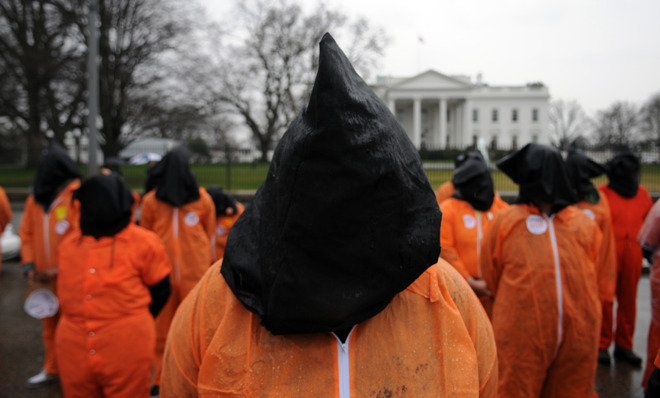Sorry, Dick Cheney: Torture doesn't work
A new report confirms what we've suspected all along: The CIA's interrogation techniques did not result in valuable intelligence


A free daily email with the biggest news stories of the day – and the best features from TheWeek.com
You are now subscribed
Your newsletter sign-up was successful
I've written a couple posts now predicting that a Senate report on the CIA's interrogation practices during the Bush years would show that the CIA's foray into torture just didn't work. Also, that the CIA lied about the effectiveness of waterboarding and other controversial techniques. Now we have a test of that prediction — not the Intelligence Committee report itself, which is still under wraps, but a bombshell in the Washington Post that quotes people with firsthand knowledge of the report. Lo and behold:
A report by the Senate Intelligence Committee concludes that the CIA misled the government and the public about aspects of its brutal interrogation program for years — concealing details about the severity of its methods, overstating the significance of plots and prisoners, and taking credit for critical pieces of intelligence that detainees had in fact surrendered before they were subjected to harsh techniques.
The report, built around detailed chronologies of dozens of CIA detainees, documents a long-standing pattern of unsubstantiated claims as agency officials sought permission to use — and later tried to defend — excruciating interrogation methods that yielded little, if any, significant intelligence, according to U.S. officials who have reviewed the document.
"The CIA described [its program] repeatedly both to the Department of Justice and eventually to Congress as getting unique, otherwise unobtainable intelligence that helped disrupt terrorist plots and save thousands of lives," said one U.S. official briefed on the report. "Was that actually true? The answer is no."
Importantly, the Senate report apparently also recommends no prosecution for these war crimes. That's depressing, if not very surprising.
You might be wondering: How was I so prescient? In fact, I deserve no credit: that torture during the Bush era yielded no valuable intelligence was completely obvious from the beginning, despite what Dick Cheney might have you believe. All you had to do was pay attention to people who have studied torture carefully. Darius Rejali, a professor at Reed College, did just that in his masterpiece Torture and Democracy (see here and here). Rejali found that torture is good for two things: intimidation and extracting false confessions. As an intelligence-gathering mechanism, it's much worse than worthless. You get no good intelligence, while what you do get is decidedly bad, including a corrosion of the legitimacy of security agencies and a weakening of the foundation of liberal democracy itself.
The Week
Escape your echo chamber. Get the facts behind the news, plus analysis from multiple perspectives.

Sign up for The Week's Free Newsletters
From our morning news briefing to a weekly Good News Newsletter, get the best of The Week delivered directly to your inbox.
From our morning news briefing to a weekly Good News Newsletter, get the best of The Week delivered directly to your inbox.
Micah Zenko makes a good point that the major issue when it comes to torture is that it is blatantly illegal, immoral, and unethical. He's right that the rule of law — not to mention basic decency — ought to land every torturer in federal prison.
But it would be a mistake to ignore the fact that it is also ineffective. The ethos of the Bush-era CIA was "know-nothingism," as Paul Krugman put it at The New York Times, "the insistence that there are simple, brute-force, instant-gratification answers to every problem, and that there's something effeminate and weak about anyone who suggests otherwise." These national security officials see themselves as the hard-headed tough guys who won't let the pathetic moral qualms of liberal cowards keep them from doing the dirty work that keeps us safe. (This is a real-life version of Jack Nicholson's famous "You can't handle the truth!" scene in A Few Good Men.) Breaking the law, then, is a Badge of Seriousness, of a willingness to do what is necessary no matter the cost.
It's critically important, therefore, to break forever this macho chest-thumping myth. Anyone who advocates torture shouldn't be met only with moral condemnation, but also contemptuous jeers for being such a naive dupe. The members of the CIA torture cabal aren't tough. They aren't keeping us safe. They are a pack of incompetents who don't know what they're doing.
A free daily email with the biggest news stories of the day – and the best features from TheWeek.com
Ryan Cooper is a national correspondent at TheWeek.com. His work has appeared in the Washington Monthly, The New Republic, and the Washington Post.
